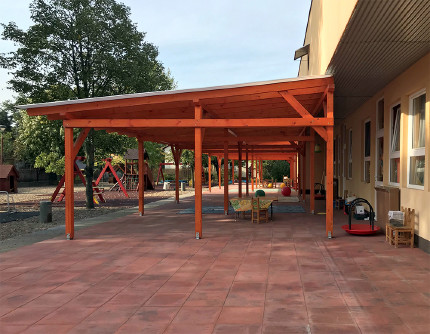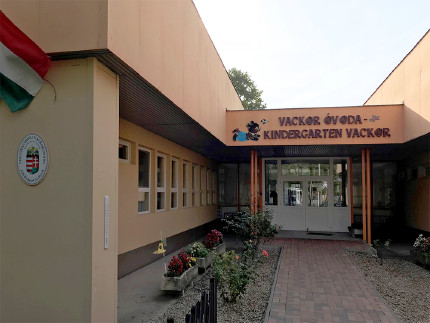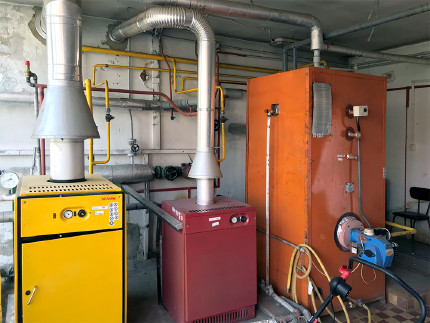Experiences with energy performance contracting in Hungary
NEWS FROM HUNGARY
22.01.2021
Written by Energiaklub

'Vackor' kindergarten in Budapest
The topic of the Hungarian pilot of the eCentral project was the renovation of ’Vackor’ kindergarten with Energy Efficiency Contract (EPC) by Budapest XVIII. District Municipality. The renovation was designed in accordance with the requirements for nearly zero energy buildings, although this is not expected in the case of renovations in Hungary.
In an energy performance contract, usually an ESCO provides expertise that is necessary to design and implement an energy efficiency renovation project. These can include anything from energy audits to operations and maintenance. This know-how on complex energy efficiency renovations can benefit municipalities whom often lack these kind of expertise and resources. This deficiency on the other hand, make municipalities vulnerable to ESCO partners, as no one is sufficiently representing the interests of the municipality.

'Vackor' kindergarten in Budapest
Moreover, in Hungary, there is no legal regulation and institutional background for renovating with EPC. Furthermore, the shortage of state-level incentives for building renovation, as well as other factors such as policies and messages set energy efficiency back, also hinder the spread of new forms of financing. As a result of lack of incentives and practical knowledge on these innovative forms of financing, municipalities tend to use more traditional financing methods for renovating its buildings. This is why Municipality of 18th district of Budapest found alluring exploring this innovative way to finance its deep renovations and join the e-Central project.

'Vackor' kindergarten in Budapest
However, further difficulty is the cheap energy prices that are kept artificially low by government measures, resulting long payback period unacceptable for ESCOs. Municipality of 18th district of Budapest owns multiple buildings, which are not energy efficient, offering a great potential for replication in the future. The Municipality initially planned to renovate one of its kindergarten (Vackor Kindergarten). Later in the project, it had to be expanded into a “building package” of three buildings – adding two swimming pools (Vilmos Endre Swimming Pool and Park Swimming Pool) - as alone the kindergarten was too small of an energy efficient project for ESCOs. All three buildings are outdated and low performing facilities, thus perfect candidates for deep renovations. However, as mentioned before, because of the low energy prices, the payback time turned out to be higher than the usually expected 2-8 years. Moreover, it required both the Municipality and the ESCO to invest a high amount of money with relatively low financial saving for the Municipality and long payback period for the ESCO.
Unfortunately, the project was not able to enter in the implementation phase as planned, only the feasibility studies have been completed. The detailed planning and selection of the ESCO company is coming after, which requires public procurement and in the latter case (selection of the ESCO company) the professional content, the development of eligibility and selection criteria requires special expertise and care.
Read more about the Pilots in Hungary here.
Read more about the Hungarian round table session here.
